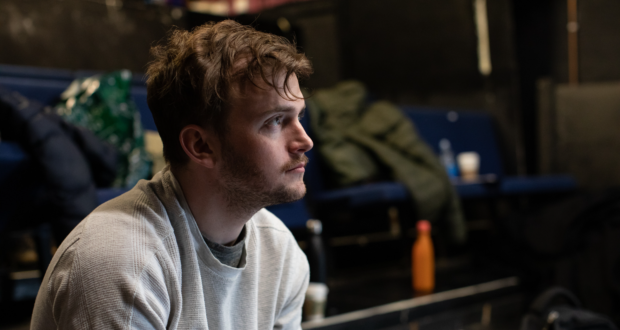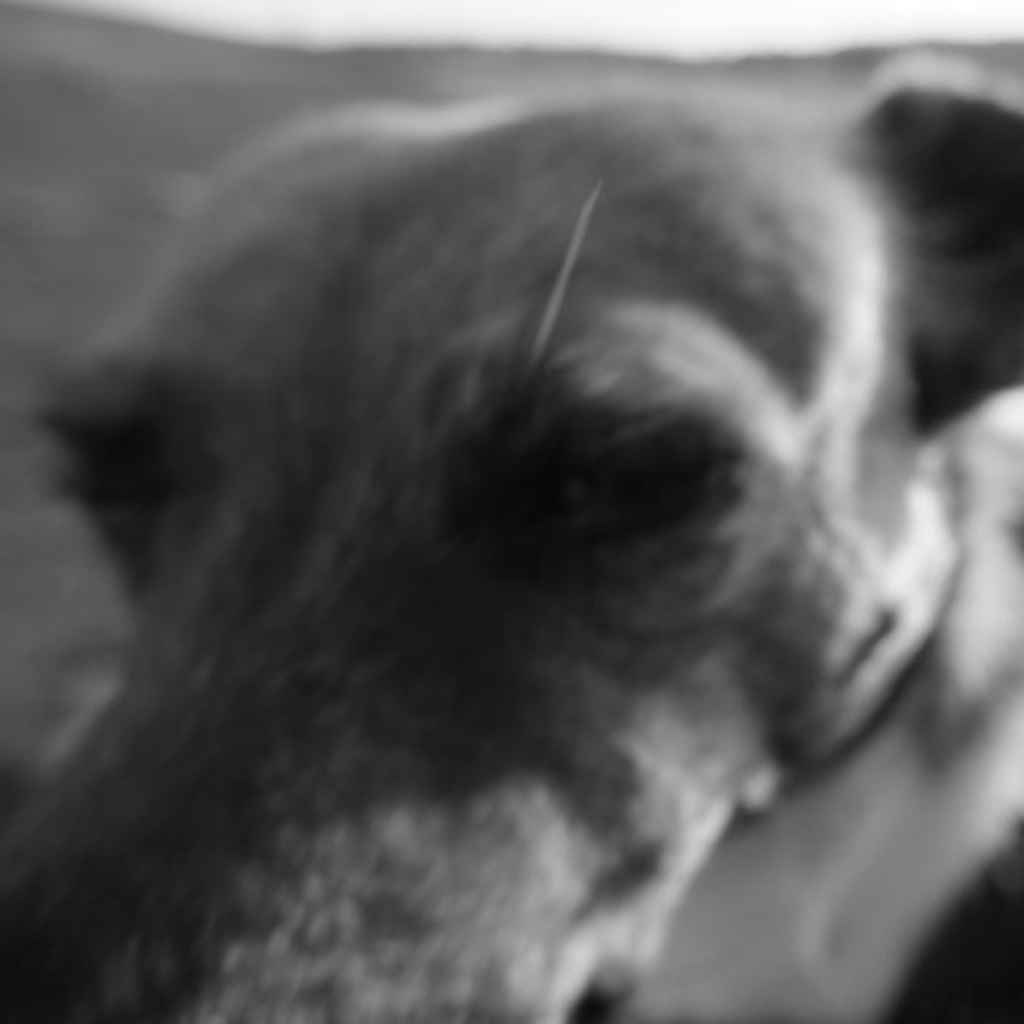Seventh Sense Theatre’s Phillip Jones on new play Dog Hair
As much as we love the power of theatre, we all know that there is a lack of proper representation of working class. Here at ET we are always trying to do our small part in addressing this, so when we heard about Seventh Sense Theatre and their new play Dog Hair, they went to the top of our list of companies we wanted to chat to.
And thankfully they were happy to talk to us as well. So we grabbed some time with one of their Artistic Directors, Phillip Jones, who also writes and performs in the play, to discuss not just Dog Hair, but just why working class voices still aren’t being heard regularly enough on the stage.
Let’s dive in right in, what can you tell us about Dog Hair then?
Dog Hair is a charming, witty and bite filled story of a mother and son dealing with the loss of their nan. It’s set in a post-industrial area of the country and when SON returns home for the funeral, he also has to deal with a rising battle between identity and his roots. Throw in MAM’s boyfriend, MIKE, who isn’t from the area, and some sparks happen. Dog Hair takes a look at asking why do the places we’re from, affect us so much. Why do people never leave if there’s nothing keeping them there.
Seventh Sense Theatre’s aim is to bring working class stories to the fore, is that where Dog Hair comes from?
Initially yes. I very much wanted to put an authentically represented working-class family at the centre of a play. There’s not enough of them, and it’s what I love to see so why not. And I was very pissed off at seeing working-class stories written by people who don’t have lived experience, just looking to tick a box.
The characters became stereotypes and caricatures of themselves. But it quite quickly became a bigger job when I realised there’s also a lot I’m trying to figure out as a person through this play. When Dog Hair started to take some shape and the characters started to speak for themselves, it became far more powerful and said so much more about working-class people than it originally did. As a company we keep working-class audiences in mind first and foremost with everything we do, but we also don’t believe that working class stories have to be ‘about’ being working class, or that those stories can only be relevant to working-class people. We’re aiming to put those audiences first, make them a priority where in the arts especially they’re so often not, and then break down the door.
From what we’ve read it feels to be based in a working-class industrial town, was any real place in mind at all, or is it a very generic industrial town where the factories and industries have slowly closed their doors?
Fully inspired by the place I was born and raised, the Rhondda Valleys in Wales, where industry was more ripped away than its doors slowly closed. (Cheers Maggie Thatch). I think one of the beauties of the play is it could work and be at home in any formerly industrial area in the country. So much of our country
is boarded-up factories and empty hills.
There is also talk of never really being able to leave your roots behind, do you feel this is an issue for working class, that it is almost a stigma hung around people’s necks?
I think, the underlying thing here, the idea of roots for the working class is as painful as ever. Especially in the last 50 years when according to our media and governments we’ve gone from being the salt of the earth to the scum of the earth. Our communities used to be known for offering a helping hand and giving the shirts off our backs. Now we’re regarded as chavs and places to avoid because ‘your tyres will get nicked’.
A lot of Dog Hair is about the idea of your roots. I think there is still a stigma. When you meet a new person one of the first things you’re asked is ‘Where are you from?’ In a way of categorising you before the conversation even begins. It’s very normal to hate the place you’re from, but only you can hate it. No one else who isn’t from there can. You’ll still fight for it and defend it. Because it’s your roots and so much of what you are. Even if you’ve left them physically.
The show’s characters are called SON and MAM, what was the thinking behind the generic names instead of actual character names then?
To me the place the story is set in is as much a character as the people. It’s the unseen force that exists just out of view but affects everything the characters do and say. It knows MAM and SON intrinsically, so doesn’t need their names.
When I was growing up I didn’t call my Mam Alison, I want the readers to feel the same intimacy and sense of knowing these characters. The only person named in the script is MAM’s boyfriend, MIKE. Not from the area. I wanted that to aid to his feeling of not looking like he fits in.
Why do you feel there is a lack of people from working class backgrounds making theatre right now?
Right, where do we kick off?
The first thing that comes to mind is why the fuck would anyone from a working-class background want to make theatre? There’s barely any representation for us, a minuscule amount of gatekeepers that are from the places that we are. And the ones that are, have to break their backs and minds to get funding. It’s a hard, lonely and mostly thankless job if you’re not in a family with a useful dose of nepotism at your disposal. (BTW for anyone who is a nepo baby, I’d be doing the exact same so don’t feel bad.)
Theatre is very expensive, from R&D to performance you need a lot of money. A lot of money regularly comes from the family bank account for some artists. The working class don’t have that luxury. (Again, trust me, I’d be doing it if I could).
Only within the last year have there been a thin showing of working-class made or content based shows. Far from enough. Most of the year it’s the same kind of story being re-produced and re-told to please the powers that be. Why would a working class person look at the majority of theatre’s programming and think, yeah that’s a bit of me? They wouldn’t. Film has a much better offering for them.
When us working class somehow end up making theatre, we’re a tickbox. We’re not made to feel special, we’re the weirdos. The angry poor young people that make audiences cringe and recoil when we speak with our regional accents. We’re not made to feel we belong here. There’s an indifference to austerity in
the UK and it reflects crystal clear within its theatre.
Who do you feel Dog Hair’s audience is, are you making working class stories for a general audience, or are you really trying to make theatre to bring a different audience into the theatre that might not always feel as if theatre is for them?
Honestly, a bit of both. Our drive as a company and part of the reason Seventh Sense started making work has always been to break down barriers in who gets to see and access theatre, get stories to the people they’re for and about, and make people who don’t normally feel at home in the theatre feel as welcome as anyone else. For our work, this means a big core drive to make working-class audiences (and potential audiences) feel like what we do is something they can connect to, see themselves represented in, and get involved in. However, we’re also constantly grated on a bit by the idea that working-class stories, or stories created with working-class audiences in mind, can’t also be for a general audience too.
Our ethos as a company is ‘class theatre, without the divide’. In the long-term sense of it, this extends to audiences as well as the people making the work. Dog Hair is a working-class story, created by a majority working-class team, and on a mission to get into spaces it’ll reach those people but the themes at its core are universal. Dog Hair is for working class audiences, yes, It’s also for anyone who’s lost someone, anyone who’s had a low-key identity crisis, and anyone who finds it a tad weird (or incredibly strained) when they head back to the place they grew up, as so many of us did recently thanks to the old pandemic.
And after VAULT Festival, what else do you have planned for 2023 then?
Well we’re back to work to pay rent first and foremost. What we’re aiming to do is find a place for Dog Hair to continue its journey. An ideal next step for us would be a longer run, and then getting the show on the road on a regional tour, especially in front of more people in lower-income areas. Taking the show back to Wales at some point would be class too. So we’ll be starting to lay the groundwork to make that happen. We’ll also have a look at putting on another CLASS ACTS scratch night, full of working class writers and creatives (trust me the last one was nuts), and we’re keen to get the ball rolling on our first short film.
Our thanks to Phillip for taking time out of his day to chat with us. Dog Hair will play at VAULT Festival 3 – 5 February (including a matinee on 5 Feb). Further information and bookings can be found here.
If you wish to support Seventh Sense Theatre they are currently crowdfunding for funds to develop Dog Hair. You can contribute towards their fund here.
 Everything Theatre Reviews, interviews and news for theatre lovers, London and beyond
Everything Theatre Reviews, interviews and news for theatre lovers, London and beyond






